QuestionDear Jana,
I have a six year old cat who has feline herpes. He does well, except he has watery eyes and conjunctivitis. My vet had told me that he would be contagious for very young kittens and older cats. She also said that most cats have the virus and only about 5% have the symptoms my guy has.
My question is: My daughter must move home for a short period of time, probably a few months. She just got a young cat from a shelter here. She was told her cat is under a year old. It was at the shelter for three months before she adopted her. My guess is that she is around 7months to a year old. Would it be safe for her to move home with her cat? Is there any way to find out if the young cat would be immune to the virus? I am thinking she could have been exposed to it already since she was in the shelter with many other cats.
I would like to let her cat live with mine in the house, but we also have a big bedroom that we could keep her in that my cat has seldom been in.
I called my vet, but they were not able to get back to me yet. Thank you for any insight you can give me.
PS....My cat's eyes are always moist and drippy.
AnswerIt is a very contagious disease and this kitten will probably be at risk for it. Even if she is vaccinated there is a good chance that she could still get it.
If vaccinated however, and if her immune system is strong, she may throw off the virus and not get the symptoms.
One thing to note, as the following excerpt says, that vaccination will not always prevent an infection, but will make one less symptomatic. Check the second paragraph.
"Vaccinating Affected Animals
In general, vaccination is a process meant for healthy animals to prevent infections that do not already exist. But what about vaccination as a treatment for existing infection? In the case of feline herpes infection, this may be a reasonable thing to do, at least if one uses the nasal/ocular vaccine. The local vaccine produces extra immune stimulation to the area where herpes infection is active and may help palliate the signs of infection. Injectable vaccine is not useful in this regard.
It should be noted that some infections lend themselves to prevention by the vaccination process and others do not. Herpes rather does not; this means that vaccination of healthy cats does not prevent infection for feline herpes; what it does do is lead to less severe signs. Vaccination against feline herpes has been deemed helpful but one should understand that, in this case, the goal is not total prevention of infection but palliation. "
http://www.marvistavet.com/html/body_herpes_viral_conjunctivitis.html
The bottom line is that she will or will not get it, depending on the above factors. I would isolate her as much as possible at the start to get her body used to the environment, and then slowly let her out if she doesn't appear to get sick. When your cat is at his worst you might want to keep them separated. My research backs up what you said about most cats being exposed. It's not a virus that we commonly see major symptoms of but some cats, like yours, can have it worse due to an underlying immune system weakness.
But again, she might just be fine.

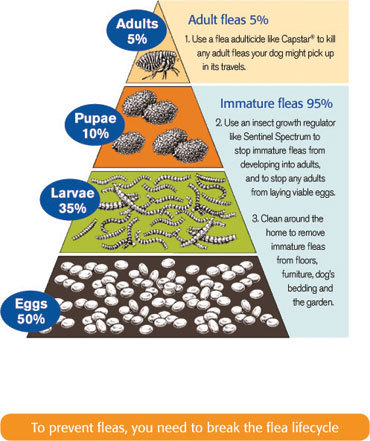 Cat pulling tufts of hair out
QuestionHi I am hopig you can shed some light on why ou
Cat pulling tufts of hair out
QuestionHi I am hopig you can shed some light on why ou
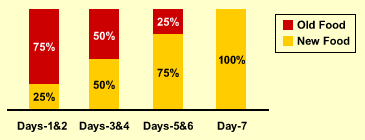 Strange noises in the stomach
QuestionQUESTION: Hello. I have a twelve-and-a-half-yea
Strange noises in the stomach
QuestionQUESTION: Hello. I have a twelve-and-a-half-yea
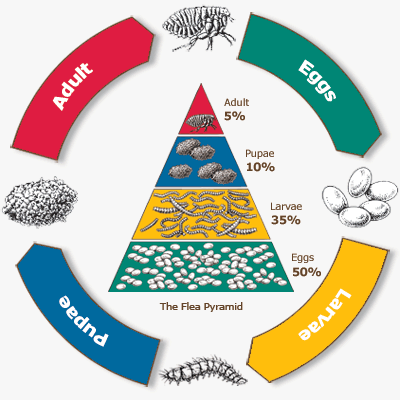 Skin and Coat Issue
Question
Lulu rash
Hello Jana,
I realize from
Skin and Coat Issue
Question
Lulu rash
Hello Jana,
I realize from
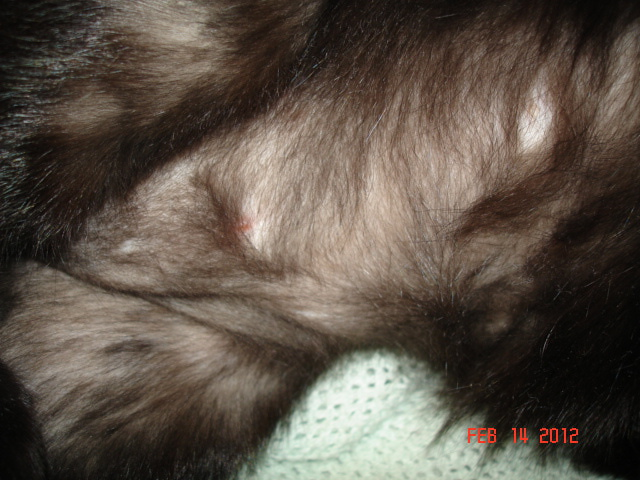 Dull Fur & Flaky Skin
QuestionQUESTION: Can you give your cat the human Omega
Dull Fur & Flaky Skin
QuestionQUESTION: Can you give your cat the human Omega
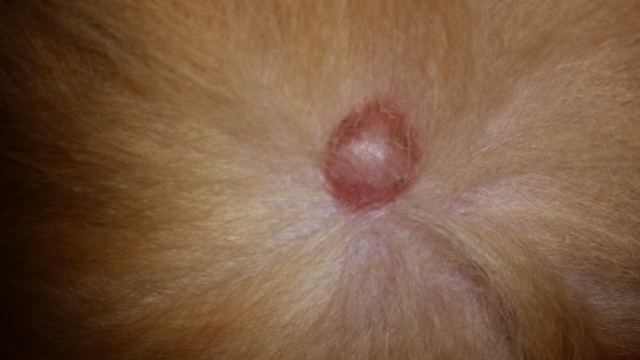 Soft pink blister looking on dogs side
Question
Blister on Golden Retr
I noticed a smal
Soft pink blister looking on dogs side
Question
Blister on Golden Retr
I noticed a smal